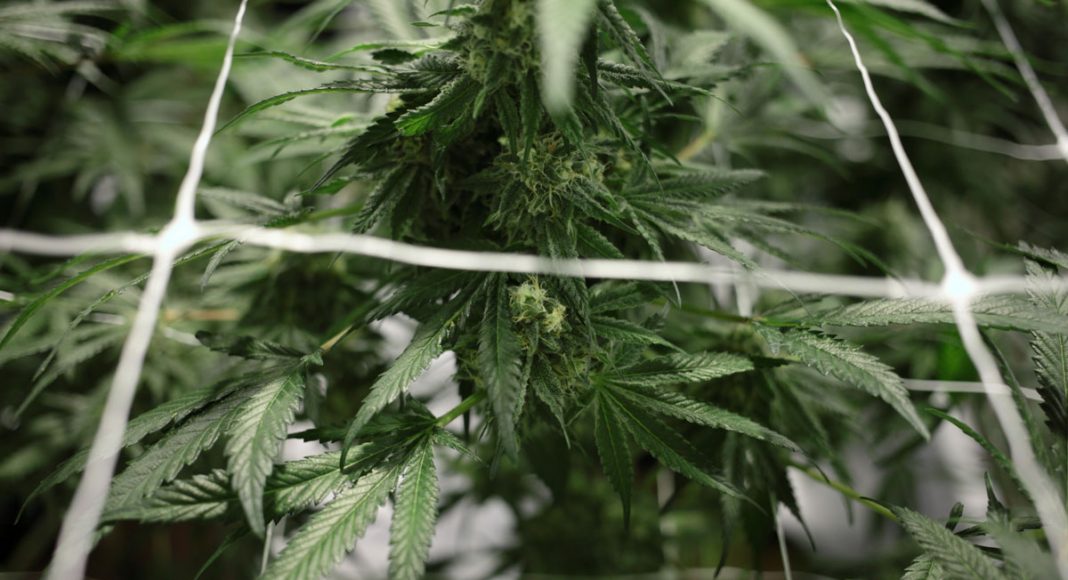Cannabidiol is a non-psychoactive cannabinoid that can be derived from industrial hemp and the whole cannabis plant. Although cannabidiol is medically beneficial and non-psychoactive, courts sided with the Drug Enforcement Administration last month that CBD is considered a marijuana extract under federal law. Therefore, as a marijuana extract, CBD falls under the broad definition of cannabis in the Controlled Substances Act, which classified marijuana, and marijuana extracts like CBD, as a Schedule I federally illegal substance in the U.S.
Industrial hemp is a whole different story. Not only can CBD be derived from hemp, but hemp can make numerous products like rope, gasoline/fuel, clothing, and more. Hemp is also heralded as a fantastic rotational crop for farmers, as the plant rejuvenates soil and naturally deters weeds and insect problems.
Why is this important? It turns out that a bill has recently been circulating around Congress, and its intention is to legalize hemp and hemp-derived CBD. Read on to learn more about this bill, the likelihood that it’ll get passed, and the future of hemp-derived CBD.
Decoding The Agriculture Improvement Act of 2018 (Farm Bill)
The legislative bill that has been circulating around Congress includes a portion that would legalize hemp and hemp-derived CBD. Fortunately, this piece of legislation made substantial progress during the week of June 11th. Recently, the U.S. Senate Agriculture Committee agreed to endorse the Farm Bill, which is otherwise known as the ‘Agriculture Improvement Act of 2018’. On June 13th, the U.S. Senate Agriculture Committee voted 20 to 1, and although the proposed bill has several provisions, its intention is to legalize CBD that’s extracted from industrial hemp.
-
Related Story: Marijuana 101: A Beginner’s Guide To CBD Tincture
At this moment, growing industrial hemp is legal on a federal scale only for research purposes or if it’s under a pilot program in select states that have legalized it. According to Jonathan Miller, the general counsel for the U.S. Hemp Roundtable (a well-known industry group), the proposed Farm Bill includes the ‘Hemp Farming Act’. The Hemp Farming Act is sponsored by Mitch McConnell, the Senate Majority Leader of Kentucky, and 25 other senators endorsed this act. Although many political figures were all for the Farm Bill, there were opposing forces too.
Specifically, Iowa Senator Chuck Grassley had the only nonconforming vote from the Senate committee. Senator Grassley went further by filing an amendment, which would have stated that extracts, derivatives, and cannabinoids would remain Schedule I controlled substances just like heroin. However, a public outburst occurred after the filing, which led to the amendment never getting voted on.
Next Steps To Pass The 2018 Farm Bill
According to Senate leader Mitch McConnell, the Farm Bill is set to be voted on by the end of June. From there, the Farm Bill must travel to the U.S. House for further consideration. The following statement was issued by Jonathan Miller regarding this bill and the likelihood of it getting passed: “The House may not pass it, and it might not include hemp in their bill. But, if it passes with the current language, then, hemp-derived CBD would be legal from a federal perspective.”
However, this will only be the case if President Trump signs the bill into official law. In the past, President Trump hasn’t publicly expressed his views on hemp. Last week though, the President told various reporters that he supports ending the federal ban on marijuana. If President Trump stays true to his word, the move would be historic because it would result in removing the substance from its current Schedule I classification. Although the President has expressed his views to end the federal ban on marijuana, his attorney general, Jeff Sessions has quite the opposite view.
-
Related Story: Marijuana Legalization Is Coming To Vermont July 1
Regardless, if the Farm Bill passes through the necessary stages it needs to and if it’s signed into law before its expiration date in September, hemp could become an agricultural commodity. However, there will likely be limitations and regulations as to who can grow it and where they can legally do so.
Future Of Legal Hemp & Hemp-Derived CBD
If the 2018 Farm Bill is signed into law, hemp would likely become a huge cash crop for farmers including tobacco farmers. Not only is hemp durable, it’s also extremely versatile since it can make numerous products. In the future, hemp may replace plastic, which would be much more renewable and biodegradable than plastic on a worldwide scale.
Nowadays, more tobacco farmers are moving towards growing hemp since it’s medically beneficial, it helps people rather than hurts them, and it has more positives than negatives unlike tobacco. Overall, if the 2018 Farm Bill is approved, we’ll likely see many changes occur, which could positively impact individuals, society, and the economy, especially since CBD is expected to become an annual $1 billion market by 2020.


